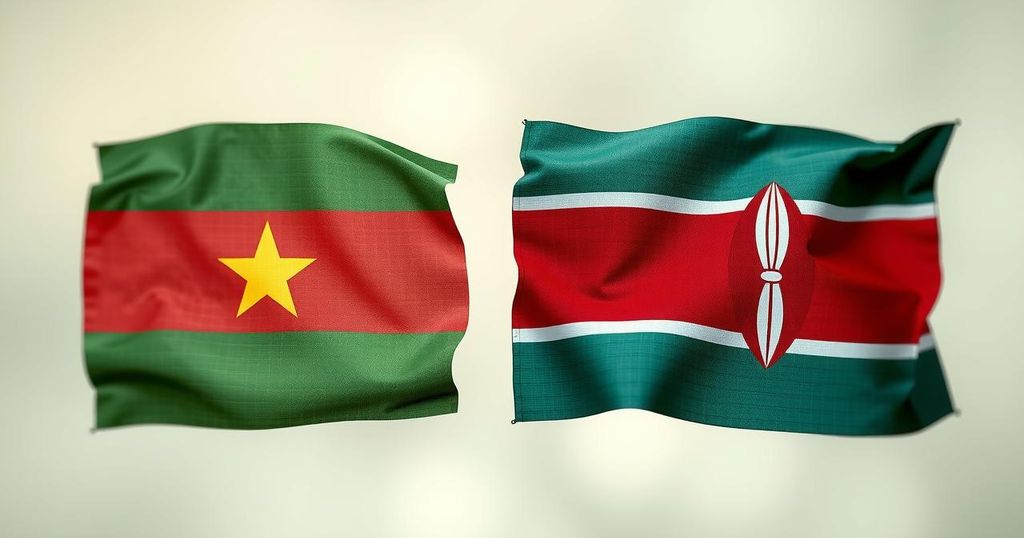Sudan has imposed a ban on all imports from Kenya, primarily due to the hosting of the RSF in Nairobi. The move aims to assert Sudan’s sovereignty amidst a prolonged civil war. The import suspension includes significant goods like tea and pharmaceuticals, which will adversely affect trade relations between the two countries. The situation remains tense as the conflict in Sudan escalates, with dire humanitarian implications.
Sudan has recently enacted a comprehensive ban on all imports from Kenya, a decision rooted in the hosting of the paramilitary group Rapid Support Forces (RSF) in Nairobi. This response reflects Sudan’s concern for its sovereignty and national security amid ongoing civil conflict. The RSF, engaged in a violent struggle against Sudan’s military for two years, signed a charter in Kenya to establish a competing government in Sudan last month.
As stated in a decree from Sudan’s ministry of trade, this import suspension is effective immediately and covers all entry points, including ports and airports. The move halts imports of essential goods from Kenya, such as tea, food, and pharmaceuticals, impacting both nations. Kenya has been a crucial trading partner for Sudan, particularly in agriculture, with tea being one of the major exports.
The escalating tensions stem from perceptions of Kenya’s alignment with the RSF. President William Ruto has received backlash domestically over perceived favoritism towards the group, leading to Sudan recalling its ambassador to Kenya. Sudan has labelled the hosting of RSF meetings in Kenya as hostile, although Kenya defends its role as a facilitator seeking solutions to the conflict without hidden motives.
The economic implications of the ban are significant, particularly given the importance of tea exports for Kenya’s economy. According to economist Ken Gichinga, the ban could gravely impact foreign exchange and financial services, magnifying the economic ripple effects. Notably, Kenyan tea exports to Sudan have already experienced a 12% decline in the past year due to the ongoing conflict.
The conflict has caused extensive disruption in Sudan, leaving the markets fragile, especially in the context of damaged transportation networks and violence in key trading areas. The war has resulted in staggering casualties and extensive displacement, exacerbating the overall humanitarian crisis.
For more details on the ongoing situation in Sudan, further information can be accessed from BBCAfrica.com.
In summary, Sudan’s import ban on Kenyan goods emerges from geopolitical tensions tied to the RSF’s activities. This action reflects broader concerns regarding national security and the fallout of civil conflict. The economic ramifications are likely to impact both nations, especially affecting Kenya’s tea exports, already strained by the instability in Sudan. The overall humanitarian situation remains dire, underscoring the gravity of the ongoing conflict.
Original Source: www.bbc.co.uk




